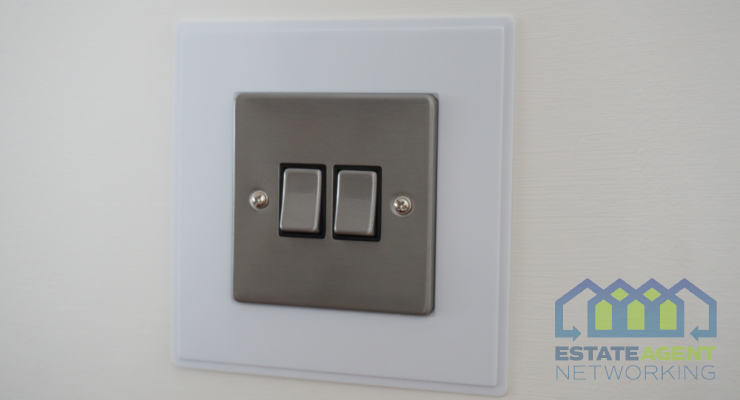4 Strategies for Getting the Best Electricity Deals for Your Business
Electricity is one of the most significant operating costs for businesses in the UK, and finding the best deals can make a considerable difference to your bottom line. With energy prices fluctuating and a complex array of tariffs available, securing the most cost-effective electricity deal requires a strategic approach. In this guide, we’ll explore four essential strategies to help you find and secure the best electricity deals for your business, ensuring you’re not paying more than you need to for your power.
1. Understand Your Energy Needs and Usage Patterns
Before you start searching for the best electricity deals, it’s crucial to have a clear understanding of your business’s energy needs and usage patterns. Knowing when and how you consume electricity allows you to choose a tariff that aligns with your specific requirements.
Key steps to assess your energy usage:
- Review Past Bills: Examine your previous electricity bills to identify your average monthly usage, peak usage times, and any seasonal variations. This information will help you understand your typical energy demands.
- Monitor Consumption: Consider investing in a smart meter or energy monitoring system to get real-time data on your electricity usage. This can help you identify patterns, such as peak demand periods or inefficient equipment that could be driving up costs.
- Identify Usage Trends: Determine if your business operates on a 24/7 basis or has specific peak hours that require higher energy usage. Understanding these trends will enable you to choose a tariff that best suits your operational needs.
By fully understanding your energy consumption, you can select an electricity deal that offers the most value, rather than overpaying for energy you don’t need or facing high charges during peak periods.
2. Compare Multiple Suppliers and Tariffs
The UK energy market is highly competitive, with numerous suppliers offering a wide range of tariffs tailored to different business needs. To get the best deal, it’s essential to compare offers from multiple suppliers rather than sticking with your current provider out of convenience.
How to effectively compare suppliers:
- Use Comparison Tools: Online Business Electricity comparison tools allow you to quickly and easily compare tariffs from different suppliers. These tools can show you a range of options based on your specific energy usage, making it easier to identify the most cost-effective deal.
- Request Custom Quotes: For larger businesses or those with unique energy needs, it may be beneficial to request custom quotes directly from suppliers. This approach can result in more tailored offers, potentially leading to better rates or additional benefits such as energy management services.
- Consider Contract Lengths: Suppliers offer different contract lengths, typically ranging from one to three years. While longer contracts might offer stability, shorter contracts can give you the flexibility to take advantage of future price drops. Weigh the pros and cons of each option based on your business’s long-term plans.
- Evaluate Additional Services: Some suppliers offer added services, such as energy audits, efficiency consultations, or renewable energy options. While these may come at an additional cost, they can lead to long-term savings by helping you reduce overall energy consumption.
By thoroughly comparing suppliers and tariffs, you increase your chances of securing a deal that offers both competitive rates and added value.
3. Consider the Benefits of Fixed vs. Variable Tariffs
When selecting an electricity deal, you’ll often need to choose between a fixed tariff and a variable tariff. Each has its advantages and disadvantages, and the best option depends on your business’s risk tolerance and market outlook.
Understanding the difference:
- Fixed Tariffs: With a fixed tariff, you agree to pay a set rate for your electricity over the duration of your contract. This provides price certainty and protects your business from potential increases in energy prices. However, you won’t benefit if prices drop during your contract period.
- Variable Tariffs: Variable tariffs fluctuate with the market, meaning your electricity rate can go up or down. While this can be beneficial if prices decrease, it also exposes your business to the risk of rising costs. Variable tariffs are generally more suitable for businesses that can absorb potential price increases or those that closely monitor the energy market.
- Hybrid Options: Some suppliers offer hybrid tariffs, which combine elements of both fixed and variable rates. For instance, you might lock in a portion of your energy at a fixed rate while the remainder fluctuates with the market. This approach can provide a balance between stability and flexibility.
When deciding between fixed and variable tariffs, consider your business’s budget, financial stability, and ability to respond to market changes. A fixed tariff might be the safest bet for budget-conscious businesses, while those with more financial flexibility might prefer a variable or hybrid option.
4. Leverage Negotiation and Timing
Timing and negotiation are crucial when securing the best electricity deals. Energy prices can fluctuate based on market conditions, regulatory changes, and seasonal factors, so being strategic about when you lock in a deal can result in significant savings.
Key tactics for effective negotiation and timing:
- Monitor Market Trends: Keep an eye on energy market trends to identify the best time to negotiate or renew your contract. For instance, energy prices often rise during the winter months when demand is higher, so you might find better deals in the spring or summer.
- Negotiate with Suppliers: Don’t be afraid to negotiate with suppliers, especially if you’re a larger business or if you’ve received a better offer from a competitor. Suppliers may be willing to match or beat competitor rates to win your business. Highlighting your value as a customer and being prepared to switch can give you leverage in negotiations.
- Renew Early: Many businesses wait until their contract is about to expire before looking for a new deal. However, starting your search early can give you more time to compare options and negotiate better terms. Some suppliers offer renewal discounts for early commitment, so it’s worth exploring these options well in advance.
- Consider a Broker: Energy brokers specialise in securing the best deals for businesses. They have in-depth market knowledge and relationships with suppliers, which can lead to better rates than you might be able to negotiate on your own. While brokers typically charge a fee or receive a commission, the savings they secure can outweigh these costs.
By carefully timing your contract renewal and effectively negotiating with suppliers, you can secure an electricity deal that aligns with your business’s needs and budget.
Securing the best electricity deal for your business requires a strategic approach, informed by a thorough understanding of your energy usage, a comprehensive comparison of suppliers, and careful consideration of tariff options. By understanding your needs, comparing multiple offers, choosing the right tariff, and negotiating effectively, you can significantly reduce your electricity costs and improve your business’s bottom line. With energy prices continuing to fluctuate, it’s more important than ever to stay informed and proactive in managing your electricity contracts.









